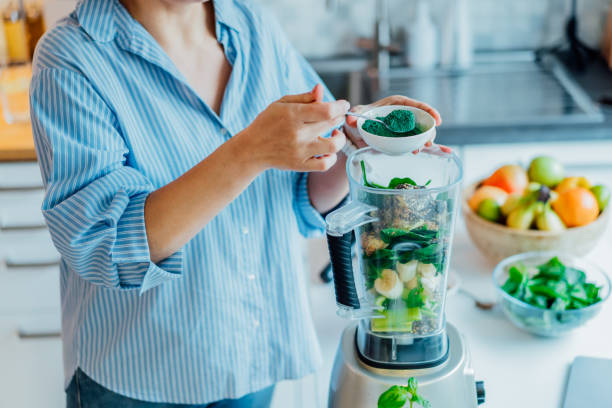Steer Clear: 10 Foods That Can Aggravate Your Ulcer

Steer Clear: 10 Foods That Can Aggravate Your Ulcer
Living with an ulcer can be challenging. Whether you have a peptic ulcer or a mouth ulcer, managing your diet is crucial in preventing discomfort and facilitating the healing process. This article delves into the top 10 foods that can aggravate your ulcer and offers dietary advice to help you find relief and enhance your overall well-being.
Understanding Ulcers
Before discussing the foods that can exacerbate ulcers, let's briefly understand what an ulcer is. An ulcer is a sore that develops on the skin or mucous membranes, typically due to an injury or inflammation. Two common types of ulcers include peptic ulcers, which occur in the stomach or duodenum, and mouth ulcers, which develop inside the oral cavity.
The Role of Diet in Ulcer Management
Diet plays a significant role in ulcer management. What you eat can either soothe or worsen your condition. Here's a closer look at the link between diet and ulcers and how certain foods can aggravate the situation.
Foods That Can Aggravate Ulcers
Spicy Foods
Spices like chili, black pepper, and hot sauces can irritate the stomach lining, potentially worsening peptic ulcers. Avoid spicy dishes or consume them in moderation.
Citrus Fruits
Oranges, lemons, and grapefruits are rich in citric acid, which can be harsh on mouth ulcers. The high acidity levels can exacerbate pain and discomfort.
Tomatoes
While tomatoes are a staple in many dishes, they are also highly acidic. This acidity can lead to increased discomfort for peptic ulcer sufferers.
Coffee and Caffeinated Beverages
Caffeine can stimulate the production of stomach acid, making it a bad choice for those with peptic ulcers. Go for decaffeinated options.
Alcohol
Excessive alcohol consumption can weaken the mucous lining of the stomach, making it more susceptible to irritation and ulcers. Limit your alcohol intake or avoid it altogether.
Fried and Greasy Foods
Deep-fried foods, like French fries and fried chicken, are high in fat. They can slow down digestion, leading to stomach discomfort for peptic ulcer patients.
Carbonated Drinks
Soda and other carbonated beverages can cause bloating and gastric discomfort, which is particularly bothersome for those with peptic ulcers.
Chocolate
Chocolate contains caffeine and fat, which can trigger acid production and aggravate peptic ulcers.
Processed Meats
Processed meats like sausages and bacon are high in salt and preservatives, which can exacerbate inflammation and irritation in the stomach.
Spicy Condiments
Mustard, ketchup, and other spicy condiments should be used sparingly as they can intensify pain and discomfort for ulcer sufferers.
The Healing Diet - What to Eat Instead
Now that we've identified the foods to avoid, let's explore a healing diet that can provide relief and promote the healing of ulcers:
High-Fiber Foods
Foods like oats, brown rice, and whole-grain bread are gentle on the stomach and can help reduce irritation.
Lean Proteins
Choose lean protein sources like chicken, turkey, and fish, which are less likely to trigger acid production.
Non-Citrus Fruits
Choose fruits like bananas, apples, and pears, which are less acidic and kinder to mouth ulcers.
Leafy Greens
Spinach, kale, and other leafy greens are packed with nutrients and are easy on the stomach.
Probiotics
Yogurt and other probiotic-rich foods can promote a healthy gut and aid the recovery process.
Honey
Honey is known for its soothing properties and can help alleviate mouth ulcer pain.
Herbal Teas
Opt for herbal teas like chamomile which has anti-inflammatory properties and can help ease digestive discomfort.
Water
Staying hydrated is crucial for ulcer management. Drinking plenty of water can help maintain the mucus lining in the stomach.
Lifestyle Tips for Ulcer Management
In addition to dietary changes, here are some lifestyle tips that can further assist in ulcer management:
- Stress Management: High stress levels can exacerbate ulcers. Consider relaxation techniques like yoga, meditation, or deep breathing exercises.
- Small, Frequent Meals: Instead of three large meals, try consuming several smaller meals throughout the day to avoid overloading your stomach.
- Chewing Thoroughly: Chewing your food slowly and thoroughly can ease the digestive process and reduce the risk of irritation.
- Medication Compliance: If your doctor has prescribed medication for your ulcers, ensure you take it as directed.
Seeking Medical Advice
If you suspect you have an ulcer or your symptoms worsen despite dietary changes, it's essential to consult a healthcare professional. A proper diagnosis and treatment plan are critical for managing ulcers effectively.
Conclusion
Ulcers can be painful and uncomfortable, but with the right dietary and lifestyle choices, you can alleviate your symptoms and promote healing. By avoiding the ten foods that aggravate ulcers and embracing a healing diet, you can take significant steps towards a healthier, more comfortable life. Remember to consult your healthcare provider for personalized guidance on ulcer management.
Incorporating these dietary changes and lifestyle tips into your routine can improve your ulcer management.
